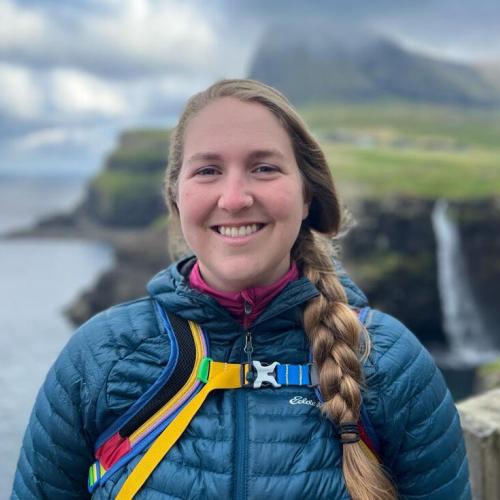
ERMA 2016-2017
What is your current professional role, and how did the ERMA program influence your career path?
My current professional role is as the national field Director at Free Press, an organization focused on media justice and making sure that communities across the United States have access to information and local journalism that allows them to participate more fully in civic life — information about voting and about local government and about their community. I do national organizing to build networks of people who can advocate with their legislators to change policy at the state and previously at the federal level
Before working at Free Press, I worked for six years at the Friends Committee on National Legislation, which is the Quaker peace lobby on Capitol Hill in Washington DC. I was raised Quaker so the organization is always something that I knew about. During my time there I was organizing hundreds of people across the United States to advocate for federal policies that reduce US militarism and involvement in wars across the world, Pentagon spending, and a number of other issues related to peace. This really was influenced by my time at ERMA because I learned about the importance of understanding the roots of human rights violations, including role that the United States plays and other world powers play in committing human rights abuses and waging wars across the world. I wanted to return to the United States after receiving this education so that I could put these lessons into practice.
Can you share a memorable experience from your time in the program?
One of the most memorable parts of the program for me was spending time with all of my classmates from a whole range of countries in the Balkans and in Europe, and I found that learning other perspectives understanding issues from different vantage points allowed me to better understand why some of these issues are so challenging to overcome, because even in the human right sector, there are real differences in what people prioritize and how we think we should approach different situations. I also spent a lot of time trying to understand the way that human rights education in a region like the Western Balkans can have such a big impact. I always found that it was easy to find other foreigners from outside the region who were studying the Balkans and learning about how to support human rights in a place that had experienced war, but I thought that the ERMA program was a real opportunity to make sure that the people who have a seat at the table when it comes to human rights in the western Balkans—or any region that experienced conflict —are people from that region themselves. I feel fortunate that as someone who’s not from the region that I was able to be part of that community, but I really think that human rights education is most useful and impactful when it’s applied by the people from a specific context in their own context. They are going to understand it best and that’s why I wanted to move back to the United States to apply these learnings and to challenge my own government’s violence. I’ve been able to see all of my classmates from ERMA really excel in their work with refugees, with pro-democracy work, journalism, supporting women’s rights and so many other things
How has being part of the EAN Network benefited you personally or professionally?
I have really appreciated the chance to stay in touch with my classmates through this broader network and to stay in touch with my professors. I think there’s a lot of opportunities for mentorship and professional development that have been provided and for me it’s really valuable to get the chance to stay in touch and to continue sharing the learnings that we are taking away from our careers as we continue to learn and and continue to apply these lessons as our careers take shape.
What advice would you give to current and prospective ERMA students?
One of the real lessons that I would take away or the advice that I would give to a new student is to spend a lot of time — even just informal time — with your classmates talking about some of the issues that you’re discussing in class. there’s a lot of reading and a lot of work, but at the end of the day to me the thing that is the most memorable to this day was the Informal relationships that I built with my classmates and the conversations all of us would have about how the issues we were learning about presented themselves in real life, and understanding how those issues look different depending on the country we grew up in, but for the most part, we were able to really learn from each other and that’s what I remember the most this day.